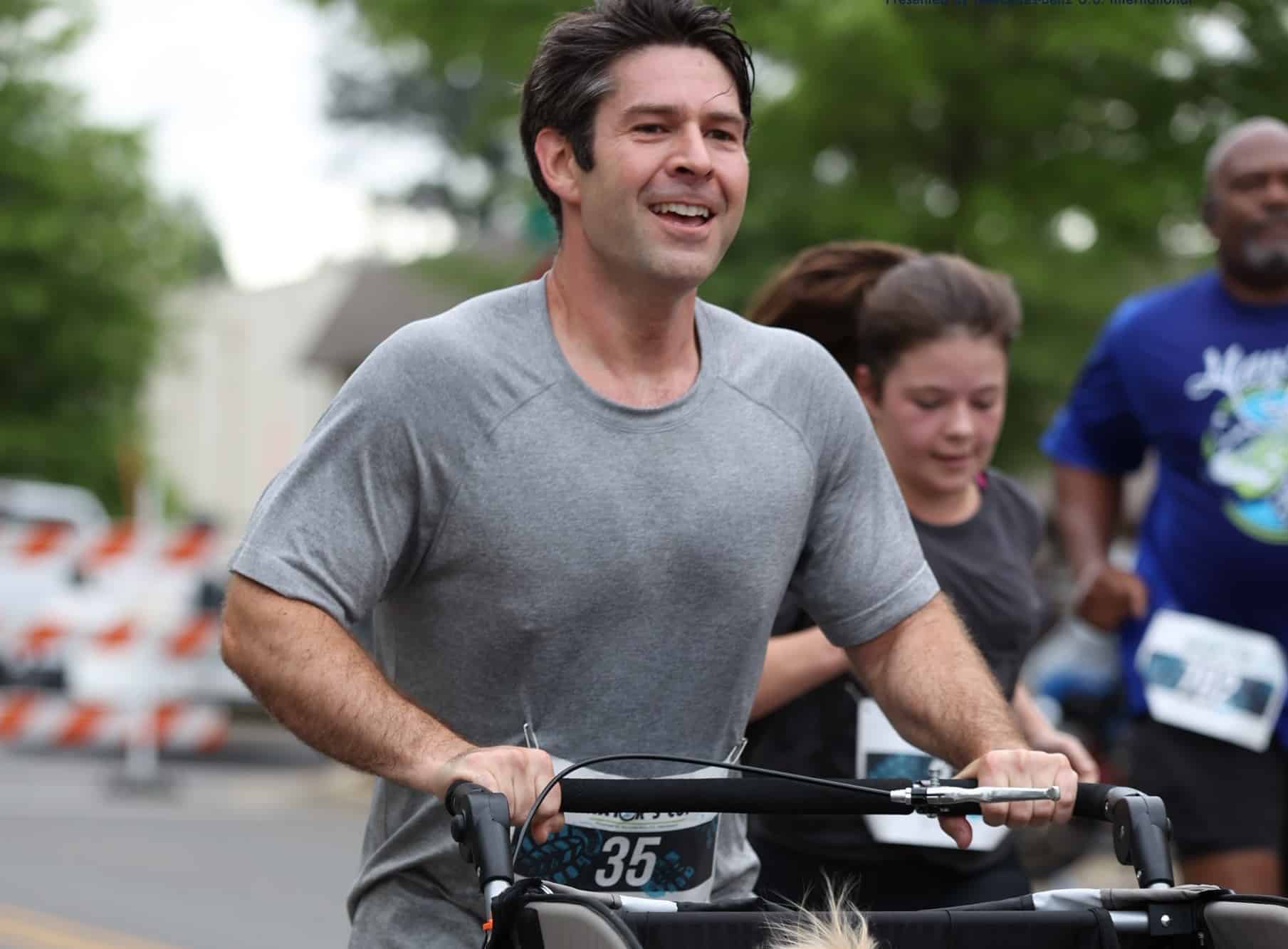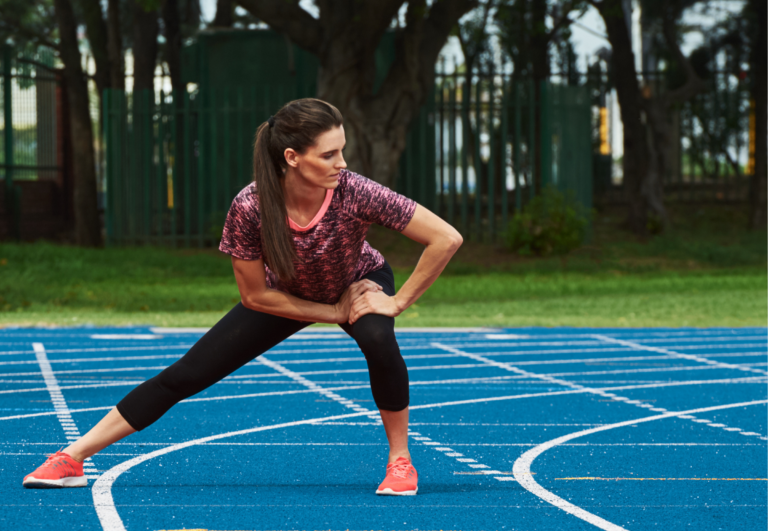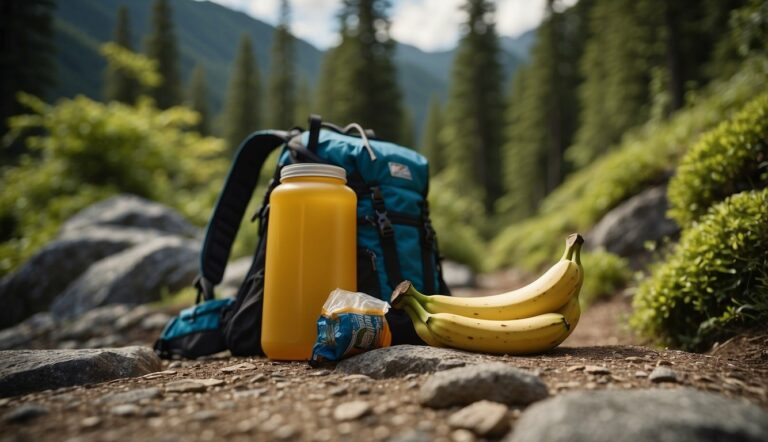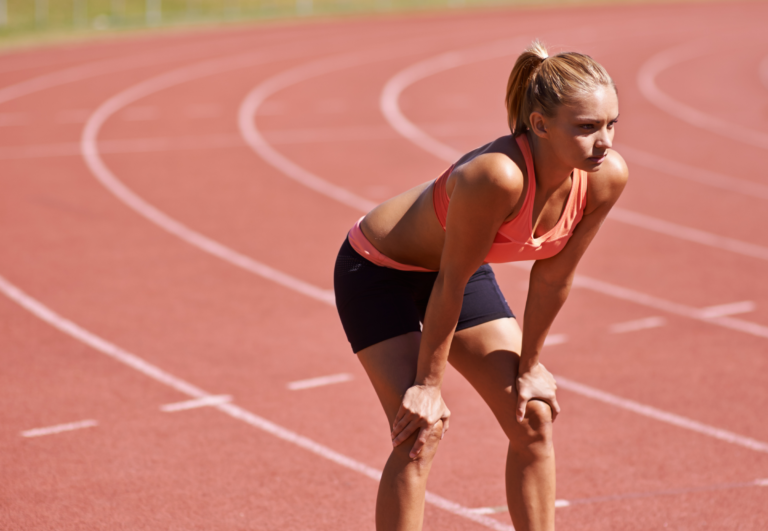How Do Runners Run Without Water? (5K, 10K, Half and Full Marathons)
We all know how important hydration is for long-distance running, but some runners seem to last for miles without needing to stop for a drink. How do runners run without water?
Runners can only run without water for a little while. Depending on how hydrated you are initially, you are able to run without water for about 1 hour if temperatures are below 72°F. After this, you will begin to suffer the effects of dehydration. Prior fitness and sweat rates also help determine how long you can go without water.
Continue reading below to find the answers to all of your questions regarding this important issue.
How can runners run without water?
Water is essential for anyone participating in intense forms of aerobic exercise such as running. It plays an important role in the regulation of body temperature, as well as in the lubrication of joints and proper organ function. Without drinking water for long periods, you will suffer from severe thirst, dehydration, and eventually, organ failure leading to death.
The importance of water becomes incredibly apparent when participating in aerobic exercises such as running or sprinting. Any form of exercise that causes intense sweating will require urgent fluid replacement.
While it may look like marathon runners are able to last for long periods of time without water, in most cases, if they aren’t able to replenish fluids within an hour they will begin to suffer the effects of dehydration. For this reason, many long-distance runners will carry water with them on their runs.
Obviously, running doesn’t require you to continuously drink water. Shorter distances are safe to run without drinking, but it’s a best practice to make sure you are properly hydrated before your run and to make sure to bring water with you if possible during your run as well.
How long can you run before needing water?
When it comes to hydration while running, it’s less about distance and more about time.
Running for more than an hour without drinking water can be unsafe, and possibly even fatal. If you find yourself running at a moderate to slow pace for 75 minutes straight on a cool day, you will probably be fine, but running intensely in hot, sweat-inducing weather can cause heat stroke and dehydration leading to organ failure.
Hydration is extremely crucial for serious runners. Not only should you hydrate during a race or training, but you should also drink water before a race or training, with a recommended 16 oz of water about 2 hours before the event begins.
Is it ok to run long distances without bringing water?
Whether or not you need to bring water on your run depends on the amount of time or distance you intend to run, and the state of hydration you find your body in at the outset of your run. Other factors such as your current level of cardiovascular fitness and your sweat rate will also impact the figures dramatically.
In general, it is possible to run long distances without bringing water, but running for longer than one hour can be unsafe. Some people have reported completing an entire marathon without drinking water, but this is of course not recommended.
If you plan on running for more than an hour, bring along a hydration flask. Many runners carry flasks like this one with them when they are planning on running for longer than one hour.
What happens if you don’t drink water when running?
Of course, not drinking water for a few minutes while running is not going to kill you. About 60% of your body consists of water at any given time. This means that drinking 16 oz of water doesn’t directly correlate with any specific amount of distance you can run in the way that 12 gallons of gasoline might allow a car to run for 350 miles.
Instead, our bodies are saturated in water. The water we drink is a continual replenishment of already rich reserves. Because of this, you can run for quite a long time without drinking any water. However, if you fail to drink water for a sufficient amount of time and continue to use your muscles to perform a moderate-high intensity exercise such as running, eventually you will eventually become dehydrated.
The effects of dehydration include a dramatic drop in blood pressure resulting in dizziness and fatigue, a failure to produce saliva or sweat, and ultimately complete organ failure leading ultimately to death if left untreated.
Can you run a 5K without water?
A 5K is a popular way to get into running and a great challenge to work up to if you’re a beginner. It is also popular with those who run regularly because they are not particularly time consuming and can be a pleasant way to spend a morning. Should you take water to a 5K?
Someone in reasonably good physical shape should have no problem completing a 5K without drinking water. Most runners can complete a 5k in 30-40 minutes, which falls well below the 60-minute hydration window.
With that being said, it would be wise to hydrate before and after such an event.
Can you run a 10K without water?
A 10K is the next stage in competitive running and is, obviously, twice the length of a 5K and is likely to take about twice as long to run. Can you run in without bringing along a water bottle?
While it is possible to complete a 10K without drinking water, with average times clocking in between 50-70 minutes, a runner will likely finish the race in a mild state of dehydration.
It’s not recommended that you attempt to complete a 10K without drinking water.
Can you run a half marathon without water?
A half marathon is 13.1 miles or slightly more than twice the distance of a 10K (10K is 6.2 miles). Given that taking a bottle of water is recommended when running a 10K, is it possible to get through a half marathon without hydrating?
Some elite runners, completing their half marathon in under an hour, should be okay without hydrating during the race, but running a half marathon without hydration can be dangerous for most people.
Runners should hydrate at least every hour they are training or competing. If you fail to do so, you will experience the effects of dehydration.
Can you run a marathon without drinking water?
A marathon is a full 26.2 miles and is so-named in honor of the starting point of the Greek messenger who ran from Marathon to Athens to announce their victory in battle. After delivering the message, he died.
It is possible to run a full marathon without drinking water, and it has been done many times by elite runners. However, for someone with little to no experience running these distances, not drinking water is extremely dangerous. Even runners completing a sub-3-hour marathon should be drinking to thirst at least every hour.
Just because something can be done, doesn’t mean it should be done. Running 26.2 miles without drinking water can be fatal, especially on a hot day.
How to stay hydrated while running
Perhaps the most important question that’s been asked thus far, how does one stay hydrated while running.
To keep your body at peak levels of hydration during your run you should hydrate:
- Before your run – Drink 16 oz of water 2 hours before a run
- Immediately before your run – Drink 6-8 oz of water 15 minutes before a run
- During your run – Carry a water flask with you during your run and drink to thirst every 15 minutes after the first hour of running
Take a look at the list below and see which areas your current hydration plan might be lacking.
Drink 16 oz of water 2 hours before a run
Staying hydrated during a run begins at least 2 hours leading up to the event.
It is recommended that a runner drink 16 oz of water about 2 hours before racing or training.
Drink 6-8 oz of water 15 minutes before a run
In addition to the 16 oz of water consumed 2 hours before the event, runners should drink another 6-8 oz about 15 minutes before racing.
This will be the last pre-run hydration episode. After this, their body will begin purging its fluids through sweat.
Drink water to thirst after the first hour
One key tip to staying hydrated during a run is carrying your hydration with you. You will want to find a container that is the least invasive on your running form. Many hydration flasks made for runners are able to slip on the hand or belt in such a way that a runner’s stride or arm pumps will not be interrupted or altered by the weight.
Once you have your hydration flask in hand, you should drink to thirst every 15 minutes after the first hour. This 60-minute window is the longest a runner should go without hydrating.
If the temperature is greater than 72°F (22°C) then hydration may be required sooner than one hour.






